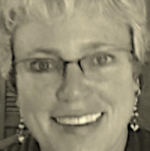“Never forget that justice is what love looks like in public.”
~ Dr. Cornel West
Then the King will say to those on his right, ‘Come, you who are blessed by my Father; take your inheritance, the kingdom prepared for you since the creation of the world. For I was hungry and you gave me something to eat, I was thirsty and you gave me something to drink, I was a stranger and you invited me in. I needed clothes and you clothed me, I was sick and you looked after me, I was in prison and you came to visit me.’ Then the righteous will answer him, ‘Lord, when did we see you hungry and feed you, or thirsty and give you something to drink? When did we see you a stranger and invite you in, or needing clothes and clothe you? When did we see you sick or in prison and go to visit you?’ The King will reply, ‘Truly I tell you, whatever you did for one of the least of these brothers and sisters of mine, you did for me.’ (Matthew 25:35-40)
Join us, today through January 21st, as we attend to one of the most pressing issues of our time: economic inequality — and what we as Christians can and should do about it. We are each of us made in the image of God, which means we are entitled to equal dignity, opportunity, and justice. And yet the United States — one of the most nominally religious societies in the world, with 82% of Americans calling themselves Christians — is also founded on fiercely competitive capitalistic  values, leaving entire classes of citizens struggling with poverty, lack of education and opportunity, and a deep sense of powerlessness and despair. How does the Gospel speak to this disconnect? What are we called to do in response to such an overwhelming problem?
values, leaving entire classes of citizens struggling with poverty, lack of education and opportunity, and a deep sense of powerlessness and despair. How does the Gospel speak to this disconnect? What are we called to do in response to such an overwhelming problem?
Our lecturer, Dr. Cornel West, has often spoken out for justice and equality, specifically what American Christians are called to do; in this course, derived from the Trinity Institute’s 2015 “Creating Common Good” conference, he shares his own insights and experiences wrestling with the problem of inequality, how this issue relates to Christian teaching, and why it’s so vital to the health of our very souls. This course promises to be a thought-provoking and productive contribution to creating common good.
Thanks to the generosity of the following sponsors, The Big Class is offered free of charge to all:
Trinity Institute is an annual conference, now in its 44th year, that equips clergy and laypersons for imaginative and catalytic leadership. The conference is sponsored by Trinity Wall Street, an Episcopal parish in New York City. Trinity Institute takes place at Trinity Church in New York City and is streamed at Partner Sites (which are often churches and seminaries) throughout the world. For more information, click here.
Forward Movement, a ministry of the Episcopal Church, grew out of the determination of the General Convention in 1934 to counter a period of anxiety, distrust, and decline in the Episcopal Church with a “forward movement” charged to “reinvigorate the life of the church and to rehabilitate its general, diocesan, and parochial work.” Best known for the popular daily devotional Forward Day by Day, which provides daily meditations based on Bible scripture readings appointed by the lectionary and Daily Office. Forward Day by Day is published in English, Spanish, large print, audio cassette, and Braille editions, and the daily meditation is available online.
The Episcopal Church
ChurchNext creates online Christian learning experiences that shape disciples. Along with our partners we are devoted to helping people grow in their Christian faith, improve their lives, and better the world.





